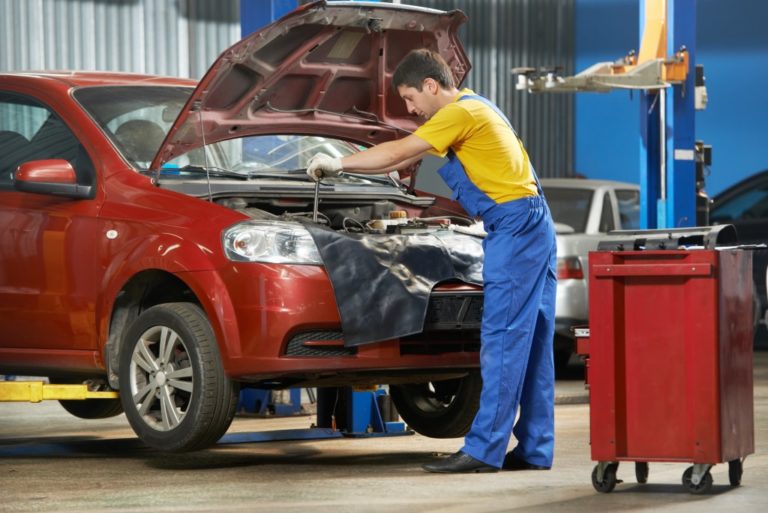- Regular maintenance, including tune-ups, filter replacements, and tire pressure checks, can improve your car’s fuel efficiency.
- Driving habits, such as gradual acceleration, brake usage, and weight management, significantly impact fuel consumption.
- Investing in dyno upgrades can enhance engine tuning and overall fuel efficiency, equating to long-term savings.
- Route planning, avoiding traffic-heavy periods, and selecting efficient routes can maximize your car’s fuel efficiency.
Gasoline prices are on the rise, and drivers are feeling the pinch. With the cost of fuel becoming increasingly expensive, drivers are seeking ways to increase their fuel efficiency and ultimately cut costs. While many believe that fuel efficiency is solely dependent on the type of car you drive, there are a myriad of ways drivers can increase their gas mileage without having to change their car. This blog post will provide practical tips and insights that will help you save money and increase your car’s fuel efficiency, also known as Fuel Sense.
Keep Up With Regular Maintenance
Regular car maintenance is essential to your car’s fuel efficiency. When you take care of your car, everything runs smoothly, using up less fuel in the process. Here are some essential things to consider:
Tune-Ups
Tuning up your car is a key factor in improving fuel efficiency. A tune-up can help optimize your car’s performance, ensure that your engine is running smoothly, and minimize unnecessary fuel consumption. This usually involves replacing the spark plugs, checking the ignition system, and adjusting the engine’s timing if necessary.
Air Filters
A clean air filter is critical to maintaining your car’s fuel efficiency. The air filter prevents dust and other particles from entering the engine and affecting its performance. Over time, the air filter can become clogged, reducing the engine’s efficiency and increasing fuel consumption. Regular replacement or cleaning of the air filter can greatly improve fuel efficiency.
Tire Pressure

Maintaining the right tire pressure is another simple but effective way to increase your car’s fuel efficiency. Under-inflated tires can increase road friction, leading to higher fuel consumption. By regularly checking and maintaining the correct tire pressure, you can reduce fuel consumption and also prolong the life of your tires.
Consider Driving Improvements
Your driving habits can also have a huge impact on your fuel efficiency. Rapid acceleration and hard braking will use up more gas than you need. This is especially true if your car has an automatic transmission. Here are some tips to keep in mind when behind the wheel:
Accelerate and Brake Gradually
Quick accelerations may seem like the norm in today’s fast-paced world, but it’s not ideal for fuel efficiency. The harder you accelerate, the more gas your engine needs. To maximize fuel efficiency, accelerate slowly and gradually to your desired speed to help your car use less gas. Similarly, avoid sudden and harsh braking, which can reduce your fuel efficiency.
Use Cruise Control on Highways
Using cruise control during long-distance drives on highways can help save a lot of fuel. When your car is cruising at a steady pace, it requires less fuel than when it has to speed up and slow down to tackle traffic. Cruise control will help keep the car at a steady speed, thus increasing fuel efficiency.
Remove Any Excess Weight
The lighter your car, the less fuel it needs to operate. Remove any excess weight from your car that you don’t need, such as unnecessary cargo in the trunk. Roof racks and bike racks can also add unnecessary weight, so it’s wise to remove them when not in use.
Invest in Dyno Upgrades

Investing in dyno upgrades can also help increase fuel efficiency. A dyno is an engine tuning device that allows for efficient dynamometer performance (EDP).
With EDP, your car’s engine can be tuned to run more efficiently, leading to improved fuel economy and reduced emissions. The cost of dyno upgrades may be expensive upfront, but they will pay for themselves in the long run with fuel savings.
Moreover, efficient dyno performance also helps optimize the power output of your car, allowing you to get more out of each tank.
Choose Efficient Routes
Shorter routes may not always be the most fuel-efficient. It’s always wise to plan your route ahead of time and choose the most efficient one. When possible, take routes with less traffic or fewer stops, as these can help maximize your car’s fuel efficiency.
For instance, if you are taking a road trip, consider taking back roads instead of the highway. Highways usually have more traffic and require your car to accelerate and brake constantly, while back roads may be smoother and less congested.
If possible, avoid traffic-laden roads during rush hour, as they can significantly reduce your car’s fuel efficiency. Choosing efficient routes can save you a lot of money and help you get the most out of each tank of gas.
Gasoline prices don’t look like they’re dropping anytime soon, and it’s important that drivers find ways to maximize their car’s fuel efficiency. In addition, using these tips to cut down on fuel consumption will not only save you money but will also reduce your carbon footprint. It’s a win-win situation for you and the environment. By following these practical tips and insights, you’ll be able to save money, increase your car’s fuel efficiency, and lower your carbon footprint — all while ensuring a smoother and longer lifespan for your car.



